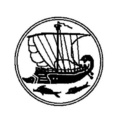Etymology
Astyanax
Ceejay
 9
9 Joined 23rd Feb 2010
Joined 23rd Feb 2010
Forum Posts: 748
Ceejay
Fire of Insight
 9
9Forum Posts: 748
diploma
Comes from the Greek verb, diplono, which means 'to fold'. A diploma was originally a document which was folded.
cyber, cybernetics
From Greek kuverno, meaning 'to steer'. The Romans turned the 'k' into a 'g' and the 'v' onto a 'b' to produce the Latin word, gubernator, meaning a helmsman. It also produced the word, 'governor', a person who 'steers' the state.
salary
Money paid to Roman soldiers as an allowance to buy salt. The Latin for salt is sal.
Comes from the Greek verb, diplono, which means 'to fold'. A diploma was originally a document which was folded.
cyber, cybernetics
From Greek kuverno, meaning 'to steer'. The Romans turned the 'k' into a 'g' and the 'v' onto a 'b' to produce the Latin word, gubernator, meaning a helmsman. It also produced the word, 'governor', a person who 'steers' the state.
salary
Money paid to Roman soldiers as an allowance to buy salt. The Latin for salt is sal.
opheliac
Forum Posts: 2122
Dangerous Mind
9
Joined 29th Aug 2009Forum Posts: 2122
Etymology
Derives from the Greek word ἐτυμολογία, etymologia, itself from ἔτυμον, etymon, meaning "true sense" and the suffix -logia, denotes "the study of"
Etymology also refers to the source word of a given word.
Derives from the Greek word ἐτυμολογία, etymologia, itself from ἔτυμον, etymon, meaning "true sense" and the suffix -logia, denotes "the study of"
Etymology also refers to the source word of a given word.
jaspersilence
 7
7 Joined 12th Dec 2012
Joined 12th Dec 2012
Forum Posts: 708
Fire of Insight
 7
7Forum Posts: 708
I heard tattoo came from the sound of how the tribes marked their skin.They had a pointed stick and another to strike down upon it which made a "tat too" kind of sound????
Magdalena
Spartalena
 62
62 Joined 21st Apr 2012
Joined 21st Apr 2012
Forum Posts: 2993
Spartalena
Tyrant of Words
 62
62Forum Posts: 2993
jaspersilence said:I heard tattoo came from the sound of how the tribes marked their skin.They had a pointed stick and another to strike down upon it which made a "tat too" kind of sound????
The Oxford English Dictionary gives the etymology of tattoo as, "In 18th c. tattaow, tattow. From Polynesian tatau. In Tahitian, tatu." The word tatau was introduced as a loan word into English; its pronunciation was changed to conform to English phonology as "tattoo".[1] Sailors on later voyages both introduced the word and reintroduced the concept of tattooing to Europe.[2]
The first written reference to the word, "tattoo" (or Samoan "Tatau") appears in the journal of Joseph Banks (24 February 1743 – 19 June 1820), the naturalist aboard Captain Cook's ship the HMS Endeavour: "I shall now mention the way they mark themselves indelibly, each of them is so marked by their humor or disposition".
The word "tattoo" was brought to Europe by the explorer James Cook, when he returned in 1771 from his first voyage to Tahiti and New Zealand. In his narrative of the voyage, he refers to an operation called "tattaw". Before this it had been described as scarring, painting, or staining.[3]
The Oxford English Dictionary gives the etymology of tattoo as, "In 18th c. tattaow, tattow. From Polynesian tatau. In Tahitian, tatu." The word tatau was introduced as a loan word into English; its pronunciation was changed to conform to English phonology as "tattoo".[1] Sailors on later voyages both introduced the word and reintroduced the concept of tattooing to Europe.[2]
The first written reference to the word, "tattoo" (or Samoan "Tatau") appears in the journal of Joseph Banks (24 February 1743 – 19 June 1820), the naturalist aboard Captain Cook's ship the HMS Endeavour: "I shall now mention the way they mark themselves indelibly, each of them is so marked by their humor or disposition".
The word "tattoo" was brought to Europe by the explorer James Cook, when he returned in 1771 from his first voyage to Tahiti and New Zealand. In his narrative of the voyage, he refers to an operation called "tattaw". Before this it had been described as scarring, painting, or staining.[3]
souladareatease
 29
29 Joined 28th Dec 2012
Joined 28th Dec 2012
Forum Posts: 5085
Tyrant of Words
 29
29Forum Posts: 5085
"shit"
Ship.High.In.Transit
This was stamped upon boxes hauling manure.
The reasoning this came about, was ships were hauling mass amounts up and down the waterways, keeping them stored below deck...
As You may have surmised...on hot days and moisture climate....pockets of methane gas would build and boats would explode.
Of which people I cant quite recall....but their ships were blowing up at an alarming rate till someone figured out this need for ventilation and stamp.
Ship.High.In.Transit
This was stamped upon boxes hauling manure.
The reasoning this came about, was ships were hauling mass amounts up and down the waterways, keeping them stored below deck...
As You may have surmised...on hot days and moisture climate....pockets of methane gas would build and boats would explode.
Of which people I cant quite recall....but their ships were blowing up at an alarming rate till someone figured out this need for ventilation and stamp.
scarletvelvet
 8
8 Joined 5th May 2011
Joined 5th May 2011
Forum Posts: 21
Fire of Insight
 8
8Forum Posts: 21
I love all things etymology.....  ♡♡♡
♡♡♡
 ♡♡♡
♡♡♡
Astyanax
Ceejay
 9
9 Joined 23rd Feb 2010
Joined 23rd Feb 2010
Forum Posts: 748
Ceejay
Fire of Insight
 9
9Forum Posts: 748
stirrup
from Old English 'stig' (climb) + 'rap' (rope). So, a 'stigrap' (stirrup) was a rope that enabled you to climb onto a horse.
from Old English 'stig' (climb) + 'rap' (rope). So, a 'stigrap' (stirrup) was a rope that enabled you to climb onto a horse.
Magdalena
Spartalena
 62
62 Joined 21st Apr 2012
Joined 21st Apr 2012
Forum Posts: 2993
Spartalena
Tyrant of Words
 62
62Forum Posts: 2993
Money...
mid-13c., "coinage, metal currency," from Old French monoie "money, coin, currency; change" (Modern French monnaie), from Latin moneta "place for coining money, mint; coined money, money, coinage," from Moneta, a title or surname of the Roman goddess Juno, in or near whose temple money was coined; perhaps from monere "advise, warn" (see monitor (n.)), with the sense of "admonishing goddess," which is sensible, but the etymology is difficult. Extended early 19c. to include paper money
mid-13c., "coinage, metal currency," from Old French monoie "money, coin, currency; change" (Modern French monnaie), from Latin moneta "place for coining money, mint; coined money, money, coinage," from Moneta, a title or surname of the Roman goddess Juno, in or near whose temple money was coined; perhaps from monere "advise, warn" (see monitor (n.)), with the sense of "admonishing goddess," which is sensible, but the etymology is difficult. Extended early 19c. to include paper money
Magdalena
Spartalena
 62
62 Joined 21st Apr 2012
Joined 21st Apr 2012
Forum Posts: 2993
Spartalena
Tyrant of Words
 62
62Forum Posts: 2993
poetry...
late 14c., "poetry; a poem; ancient literature; poetical works, fables, or tales," from Old French poetrie (13c.), and perhaps directly from Medieval Latin poetria (c.650), from Latin poeta (see poet). In classical Latin, poetria meant "poetess."
... I decided not to tell lies in verse. Not to feign any emotion that I did not feel; not to pretend to believe in optimism or pessimism, or unreversible progress; not to say anything because it was popular, or generally accepted, or fashionable in intellectual circles, unless I myself believed it; and not to believe easily. [Robinson Jeffers (1887-1962), forward to "Selected Poems"]
late 14c., "poetry; a poem; ancient literature; poetical works, fables, or tales," from Old French poetrie (13c.), and perhaps directly from Medieval Latin poetria (c.650), from Latin poeta (see poet). In classical Latin, poetria meant "poetess."
... I decided not to tell lies in verse. Not to feign any emotion that I did not feel; not to pretend to believe in optimism or pessimism, or unreversible progress; not to say anything because it was popular, or generally accepted, or fashionable in intellectual circles, unless I myself believed it; and not to believe easily. [Robinson Jeffers (1887-1962), forward to "Selected Poems"]
seekingkate
kateA
 28
28 Joined 20th May 2014
Joined 20th May 2014
Forum Posts: 2079
kateA
Tyrant of Words
 28
28Forum Posts: 2079
Magdalena and all poets participating in this thread, just wanted to tell you I'm enjoying the read 👍
Whiskey
(noun): a spirit distilled from malted grain, especially barley or rye
Whiskey is the shortened form of whiskeybae, which comes from the Old English "usquebae," derived from two Gaelic words: uisce (water) and bethu (life). Thus, whiskey literally means "water of life."
Phony
(adjective): not genuine, fraudulent
Back in old days, pirates used to sell "fawney," basically British slang for fake gold rings. Anything can happen when you add a pirate accent.
Clue
(noun): a fact or idea that serves as a guide or aid in a task or problem
According to Greek mythology, when Theseus entered the Labyrinth to kill the minotaur (a half-man, half-bull), he unraveled a "clew" - a ball of string - behind him, so he could find his way back.
The word "clue" didn't even exist until the mid-1500s when people started to vary the spelling of "clew."
(noun): a spirit distilled from malted grain, especially barley or rye
Whiskey is the shortened form of whiskeybae, which comes from the Old English "usquebae," derived from two Gaelic words: uisce (water) and bethu (life). Thus, whiskey literally means "water of life."
Phony
(adjective): not genuine, fraudulent
Back in old days, pirates used to sell "fawney," basically British slang for fake gold rings. Anything can happen when you add a pirate accent.
Clue
(noun): a fact or idea that serves as a guide or aid in a task or problem
According to Greek mythology, when Theseus entered the Labyrinth to kill the minotaur (a half-man, half-bull), he unraveled a "clew" - a ball of string - behind him, so he could find his way back.
The word "clue" didn't even exist until the mid-1500s when people started to vary the spelling of "clew."
Astyanax
Ceejay
 9
9 Joined 23rd Feb 2010
Joined 23rd Feb 2010
Forum Posts: 748
Ceejay
Fire of Insight
 9
9Forum Posts: 748
Poem
Going even further back, the word 'poem' comes from the Ancient Greek 'ποίημα', ('pee-eema') which itself derives from the verb 'ποείν', ('po-een') meaning 'to make'. In other words, the distinctive feature of a 'poem' was that it was something deliberately created, not an accidental pattern of speech or writing.
Bigamy
This word comes from the prefix 'bi', meaning 'two' (as in 'bicycle'), and the Greek word 'γάμος' ('gammos') meaning 'a wedding'.
Going even further back, the word 'poem' comes from the Ancient Greek 'ποίημα', ('pee-eema') which itself derives from the verb 'ποείν', ('po-een') meaning 'to make'. In other words, the distinctive feature of a 'poem' was that it was something deliberately created, not an accidental pattern of speech or writing.
Bigamy
This word comes from the prefix 'bi', meaning 'two' (as in 'bicycle'), and the Greek word 'γάμος' ('gammos') meaning 'a wedding'.





































